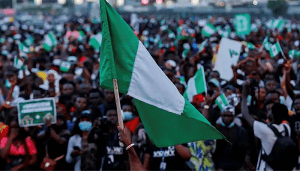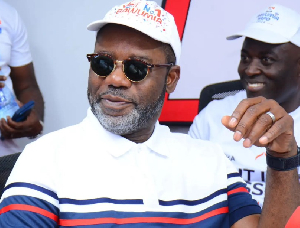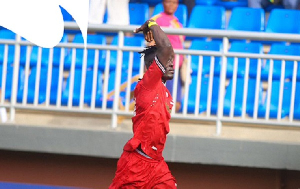Nigerian officials are demanding and receiving bribes to deliver public services, with people in rural areas paying more than those in urban centers, according to a survey conducted by the National Bureau of Statistics.
Residents in Africa’s most populous nation were forced to pay an estimated 721 billion naira — equivalent to $1.26 billion using the average exchange rate applicable during the period of the survey — in cash bribes last year, the NBS said. That corresponded to 0.35% of GDP, the bureau said.
“The frequency of bribery is, on average, higher in rural areas than in urban areas,” the statistics agency said in the report, published on its website Thursday. “In 2023, bribe-payers living in urban areas paid on average 4.5 bribes, while those living in rural areas paid on average 5.8 bribes.”
The estimated number of bribes that exchanged hands declined to 87 million from 117 million in 2019, when the last survey was done. This appears to have been a result of reduced contact with public officials to 53% from 63% of the population.
Bribery was most rife among prosecutors, land registry officers, and custom and immigration officers, though Nigeria’s judges and magistrates received the largest kick-backs, the report said.
Even though each government pledges to fight corruption, public officials have developed a reputation for converting public funds for personal use while government workers frequently demand gratification before they can perform their functions. The nation ranks close to the bottom, 145 out of 180 countries, on Transparency International’s Corruption Perception Index.
A cost-of-living crisis, spawned by currency reforms and partial removal of a gasoline subsidy, emboldened 23% of Nigerians to refuse paying a bribe when demanded, the NBS said. Economic hardship, that has seen people loot warehouses and die in stampedes to get food, was ranked higher on a list of priorities for survey participants than corruption - which placed fourth - insecurity and unemployment.
Bribe payments in the private sector more than doubled in 2023, though public-sector corruption remained dominant in the West African nation.
The data, collected between October and November, showed that less than a third of Nigerians thought that the government was effective in fighting corruption, down from more than half in 2019 during the tenure of former president Muhammadu Buhari, who was first elected in 2015 on promises to end corruption.
Click to view details



Business News of Friday, 12 July 2024
Source: bloomberg.com
Nigerian public officials took $1.3 billion in bribes in 2023 - NBS report
Opinions
















